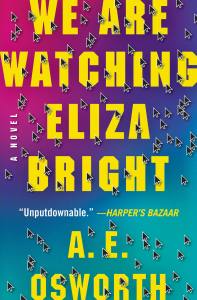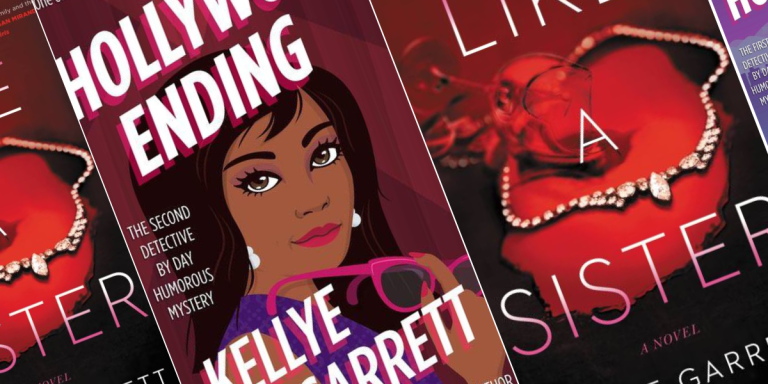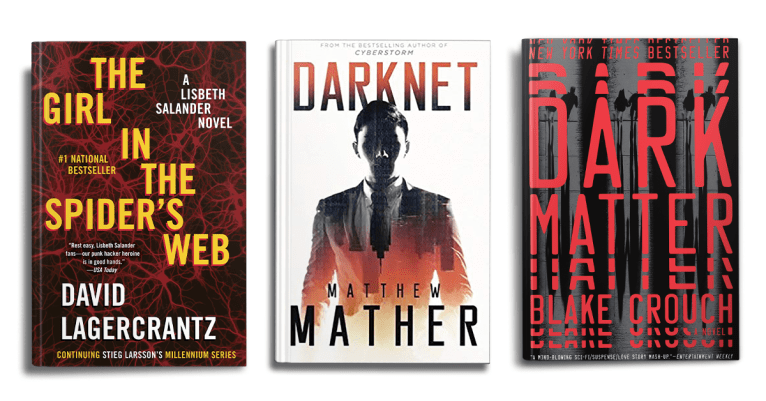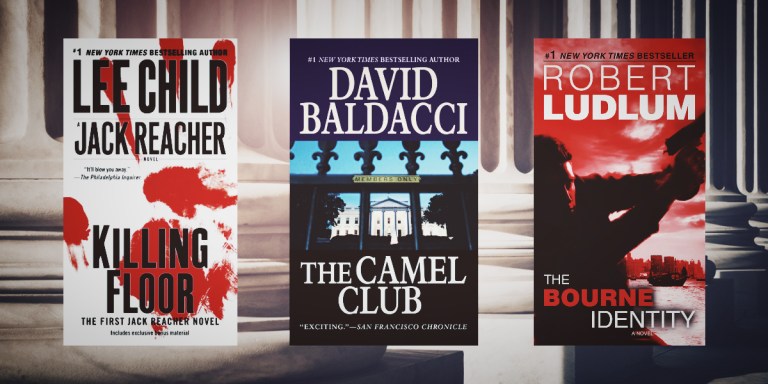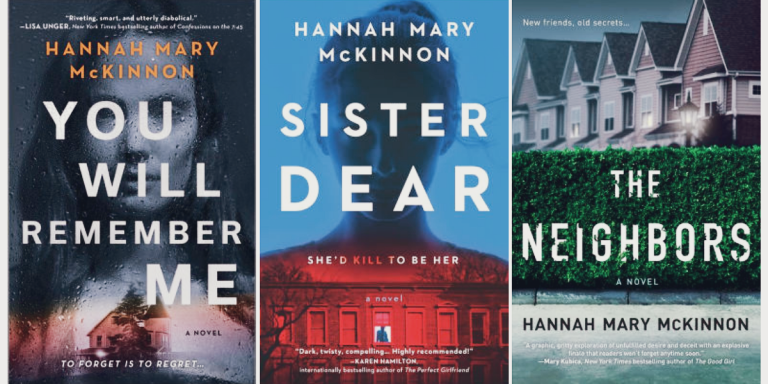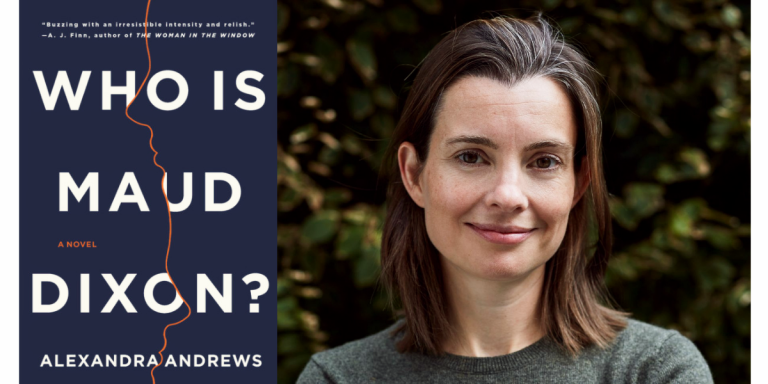From MFA Thesis To Full-Fledged Technothriller: Sitting Down With A.E. Osworth
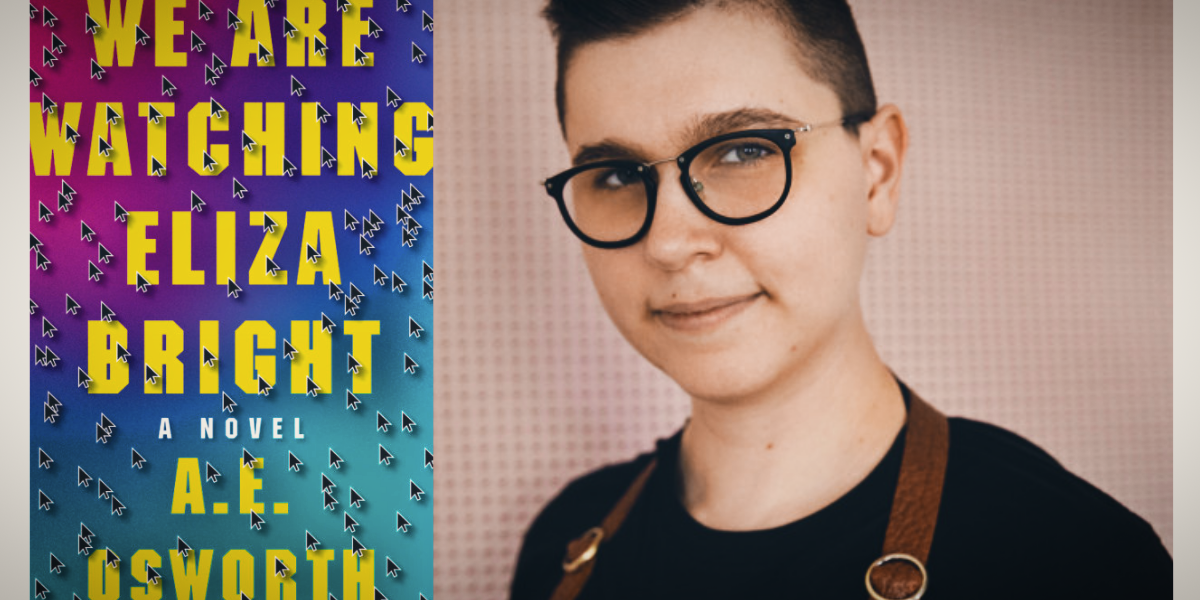 NS: First and foremost, we’d love to learn a little about yourself and what drew you to writing.
NS: First and foremost, we’d love to learn a little about yourself and what drew you to writing.
AEO: I publish under A.E., but my name is Austen (I chose it myself!). I’m a transgender novelist and I live in Portland, Oregon with an ever-growing collection of plants and a bicycle I have named Gertrude. I began writing after taking a creative writing class with Jess Arndt in the last semester of my undergraduate degree in theatre. I thought I was going to be an actor forever, but one taste fiction got me hooked. Or should I say, booked.
NS: What’s the story behind WE ARE WATCHING ELIZA BRIGHT? When did you first decide to sit down and write this book—and why?
AEO: The book actually started as a two-page assignment in Shelley Jackson’s literature seminar at The New School, where I did my MFA. The course was Strange Worlds, Strange Words and in it we had to write two pages in the style of whatever we’d just read. I was Geekery Editor at Autostraddle, a website by and for queer folks, and I’d been doing a lot of writing and thinking about Gamergate. Or to speak truthfully, I’d been getting really angry about Gamergate. When I sat down to write my two pages, all of a sudden I had thirteen. Poor Shelley, she read them (bless her). And after class, I just—kept going. When I had fifty, I started to admit this was a book.
NS: There’s a lot in this book that alludes to Gamergate and its subsequent fallout. Was this intentional when going into writing? For those who may be unfamiliar with #gamergate, could you give us a brief overview?
AEO: The short answer: Gamergate was the wide-spread and organized terrorization of women and queer people in and adjacent to the gaming industry. The long answer is more complex—it began when game designer Zoë Quinn broke up with Eron Gjonji and he falsely accused them of sleeping with a Kotaku journalist for press coverage. The internet, rather than mobbing the journalist whose ethics they were questioning, mobbed Quinn instead. Because it never was really about ethics in gaming journalism. It ballooned from there, scooping up other targets along the way until the snowball rolled right into white nationalism—former Trump strategist Steve Bannon has spoken pretty openly about his ties to World of Warcraft and the culture of disaffected gamer men. As such, Gamergate isn’t just a niche event that made a couple people’s lives very difficult for some years; it is a symptom of a greater misogynistic culture and characterizes an extra-disastrous period in American politics. As I mentioned, I got mad about it and wrote a book. Intentional, though, might be a bit of a stretch. I wrote what came to me and when I had enough of it down, I looked at what I was doing and turned the dial up on it. So yes, intentional in the end. But there is always something about my writing that wells up from a place in my I don’t completely understand.
NS: This novel deals with themes of racism, sexism, gender equality, and identity. Did you draw on any real-life experiences when plotting out this book?
AEO: Yes. Though for the higher-drama moments, I pulled those from headlines. The subtle ways people speak to and about each other, though—those are present in any group of people, anywhere, and especially online. One need only listen. I spent a lot of time analyzing the way people on Reddit narrativized the world to nail down the voice of the main narrator in the book: a collective of incels, men’s rights activists and, yes, Gamergaters who occupy a fictional subreddit. Blessedly, the very closest thing to my experience is also the brightest part of the book: my second collective narrator. I won’t spoil it for you, but they’re an interesting bunch and they intervene on Eliza’s downward spiral in some interesting ways.
NS: We heard through the grapevine you began writing WE ARE WATCHING ELIZA BRIGHT as a part of your thesis. The journey from a thesis to a full-fledged novel must have been an exciting one. As someone connected closely to their spirituality, was there a process for actualizing this book and these characters that you can share, and that others may be able to draw inspiration from.
AEO: I’m not entirely sure what spirituality has to do with this one, except the idea of praying for something to work out the week before your thesis is due (that is a joke, I’m not a prayer kinda guy). Yes, WE ARE WATCHING ELIZA BRIGHT was my MFA thesis. And I think my actual advice for actualizing a book is a good deal less mystical than people would imagine when they speak to me, and it is: if you write a little of your book every single day, eventually it is done. Once again, that’s the short answer. I have a bad habit of doing that, answering with the short answer and then the long one. The long one is: write a little bit every day until you have a lot of words, and then, of course, that is only the beginning. Let’s compare making a book to throwing a pot on a pottery wheel. The first draft of a book isn’t the pot; it’s the clay. Which means when you do this, the write-a-little-bit-every-single-day-until-you-are-done method, what results is formless and smells kinda like the river. But you need it to make the pot.
NS: What’s something fun/intriguing/new you learned while plotting WE ARE WATCHING ELIZA BRIGHT?
AEO: I learned that when I am doing the write-until-you-are-done method, that actually DOESN’T MEAN start at the beginning and go until the end, at least not for me. I write like a chaos monster. I recently described my writing method to another writer using the word “unhinged.” They thought I was putting myself down, and they tried to talk me out of using that word. I replied by saying no, you do not understand. I will start a sentence in the middle of the chapter and stop to write the end of a sentence in the next chapter and then jump all the way to the beginning of the book to write a paragraph and then come back down and finish the first sentence that I started. They responded by saying that I was right and they were wrong and that was unhinged. But I like it this way. I like being able to change direction like wind. I like being able to structure it later. I find it deeply comforting, that I have this strange magic in myself that I can call upon when I need it.
Order Now
Eliza Bright was living the dream as an elite video game coder at Fancy Dog Games when her private life suddenly became public. But is Eliza Bright a brilliant, self-taught coder bravely calling out the toxic masculinity and chauvinism that pervades her workplace and industry? Or, is Eliza Bright a woman who needs to be destroyed to protect "the sanctity of gaming culture"? It depends on who you ask…
When Eliza reports an incident of workplace harassment that is quickly dismissed, she's forced to take her frustrations to a journalist who blasts her story across the Internet. She's fired and doxxed, and becomes a rallying figure for women across America. But she's also enraged the beast that is male gamers on 4Chan and Reddit, whose collective, unreliable voice narrates our story. Soon Eliza is in the cross-hairs of the gaming community, threatened and stalked as they monitor her every move online and across New York City.
As the violent power of an angry male collective descends upon everyone in Eliza's life, it becomes increasingly difficult to know who to trust, even when she's eventually taken in and protected by an under-the-radar Collective known as the Sixsterhood. The violence moves from cyberspace to the real world, as a vicious male super-fan known only as The Inspectre is determined to exact his revenge on behalf of men everywhere. We watch alongside the Sixsterhood and subreddit incels as this dramatic cat-and-mouse game plays out to reach its violent and inevitable conclusion.
By clicking 'Sign Up,' I acknowledge that I have read and agree to Hachette Book Group’s Privacy Policy and Terms of Use
What to Read Next
